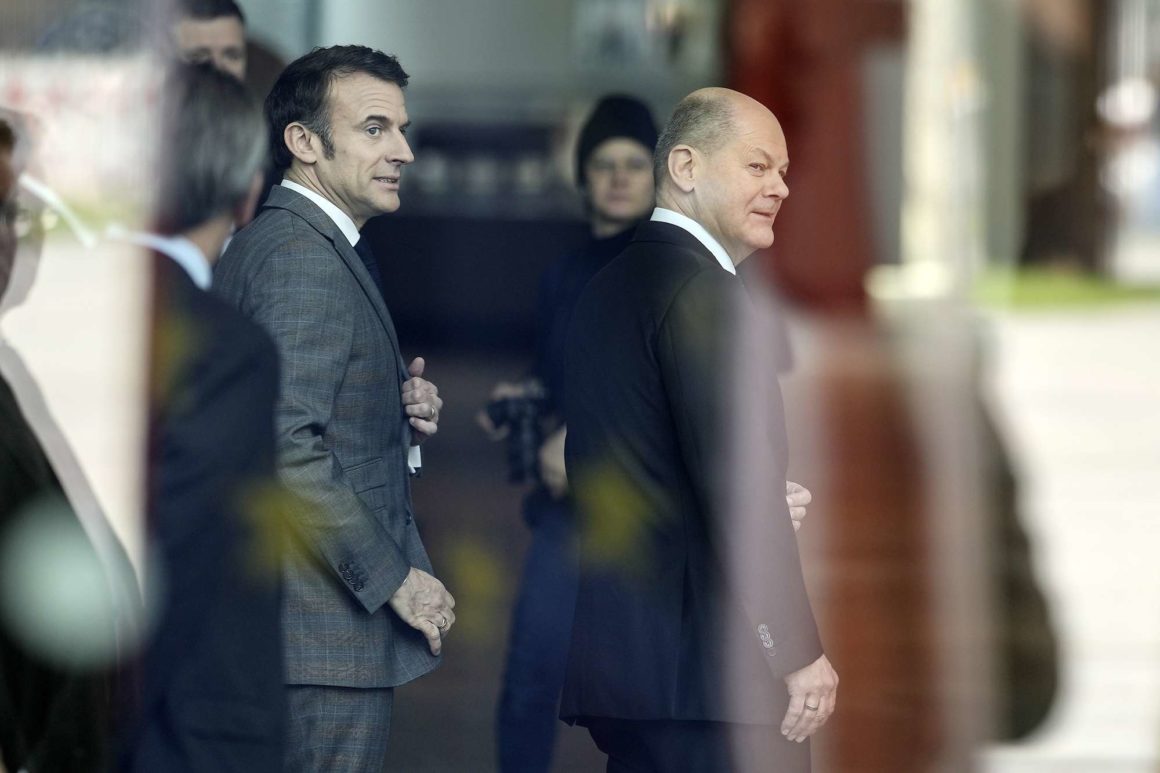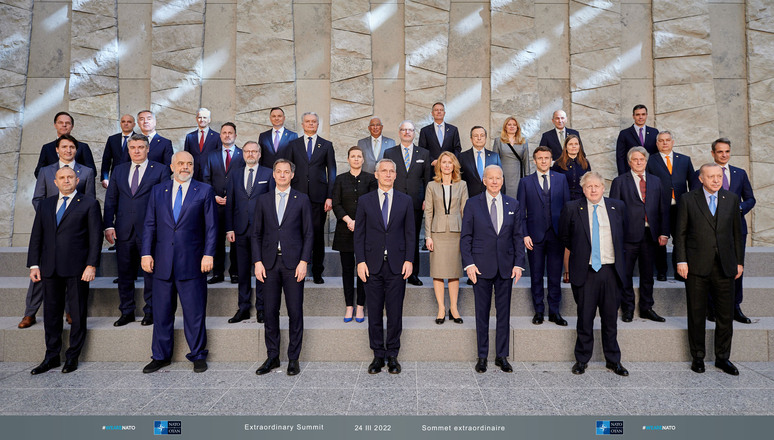By denying Ukraine the means it needs to defeat Russia and a war-winning strategy out of fear of escalation, the West has allowed the war to escalate into something far more sinister and dangerous.
The war in Ukraine would never have happened if NATO deterrence worked.
Instead, Russia, China, Iran, and North Korea have observed NATO being deterred, reducing its level of ambitions and refusing to act according to its late 2010 strategic concept, in which the Alliance was not committed to defending Ukraine, but it was committed to defending itself in Ukraine.
Having failed to reverse years of downsizing, streamlining, and cuts in the security and defense sector, the Alliance has lost its ability to deter future conflicts and wars. The result is a war growing in scale and scope. A regional war is gradually turning global.
However, recent statements from European Heads of states indicate a change in resolve, providing hope of newfound courage and new strategic thinking.
Why Ukraine’s fight is key to defeating Russia-China-North Korea alliance
A breakthrough in NATO’s strategic understanding of the Russian threat
On 16 September 2021, the EU Parliament stated that Russia is threatening peace and security in Europe by its aggressive foreign policy, including but not limited to:
- military build-ups;
- the illegal and violent occupation and annexation of Crimea;
- the violation of the territorial integrity of Ukraine, Georgia, and the Republic of Moldova;
- its failure to respect ceasefire agreements;
- acts of terrorism on the territory of EU Member States;
- cyber-attacks and attacks on sensitive infrastructure in EU Member States;
- violations of international law;
- election interference;
- and violations of the sea and air space of countries in the Baltic Sea and the Black Sea regions.
The EU Parliament further stressed that Russia was waging a hybrid war against the EU and its Member States.
This has included high-level assassination attempts with nerve agents and is reportedly responsible for nonlethal energy or acoustic attacks against US personnel. It has conducted sabotage operations in Europe, including attacks against ammunition depots in the Czech Republic and Bulgaria.
Most recently, Russia was accused of interfering with commercial navigation signals, affecting thousands of civilian flights.
Despite all the above, NATO's 2022 strategic concept limited itself to stating that the Euro-Atlantic area is no longer at peace. It does not mention the hybrid war Russia is waging against its member states.
If it did, NATO would have been forced to respond.
That’s why NATO’s most recent statement from 2 May 2024 is highly significant. NATO accuses Russia of malign activities on Allied territory and promises to respond.
“NATO Allies are deeply concerned about recent malign activities on Allied territory, including those resulting in the investigation and charging of multiple individuals in connection with hostile state activity affecting Czechia, Estonia, Germany, Latvia, Lithuania, Poland, and the United Kingdom.
These incidents are part of an intensifying campaign of activities which Russia continues to carry out across the Euro-Atlantic area, including on Alliance territory and through proxies.
This includes sabotage, acts of violence, cyber and electronic interference, disinformation campaigns, and other hybrid operations. NATO Allies express their deep concern over Russia's hybrid actions, which constitute a threat to Allied security.”
This means that NATO, like the EU, is slowly admitting the obvious: it is already a party to the war. Hopefully, it will start acting accordingly.
Newfound resolve: West debates troop deployments
In February, French President Emmanuel Macron openly discussed the possibility of sending European troops to Ukraine to help Kyiv win the war against Russia. He told reporters that while he and the other 21 European leaders present did not agree on deploying military personnel, the prospect was discussed openly.
“Nothing should be ruled out,” he said. “We will do anything we can to prevent Russia from winning this war.”
Macron later stressed that if Western troops are deployed to Ukraine, French forces will not launch an offensive against Russia.
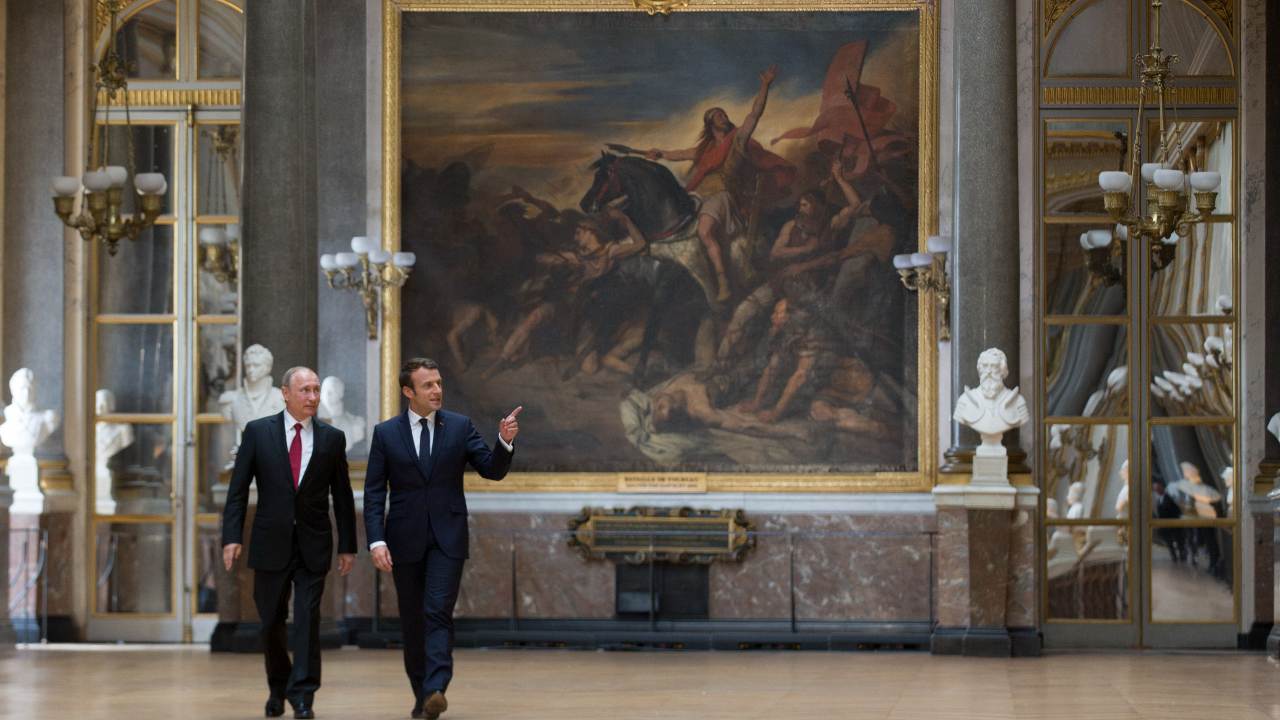
On 14 March, President Macron warned Western powers against showing any signs of weakness to Russia as he restated his position that sending Western troops into Ukraine shouldn't be ruled out.
The statement was strengthened on 2 May when he said he would not rule out sending French troops to Ukraine if Russia were to break through the front line.
According to Prime Minister Ingrida Simonyte, Lithuania is discussing the deployment of ground troops in Ukraine as part of training missions for Ukrainian soldiers.
Estonia is also considering sending troops into western Ukraine to take over non-direct combat, “rear” roles from Ukrainian forces to free them up to fight on the front, national security advisor to the president Madis Roll said.
While preferring to deploy as part of a full NATO mission “to show broader combined strength and determination,” he didn’t rule out Estonia acting in a smaller coalition:
“We should be looking at all the possibilities. We shouldn’t have our minds restricted as to what we can do.”
Defence Minister Hanno Pevkur said, however, that “Estonia is definitely not going to do something alone.”
However, NATO Secretary General Jens Stoltenberg has stressed that the Alliance has no plans to deploy troops to Ukraine. That will be the official standpoint until all 32 member states collectively agree otherwise.
That’s presently highly unlikely as several US and European officials have declared dissent against all suggestions of deploying troops to Ukraine. This includes the US, the United Kingdom, Germany, Poland, Spain, and Italy, as well as Hungary and Slovakia, two countries whose leaders are often seen as pro-Russian.
France, Estonia, and Lithuania are, however, not alone in their deliberations.
Petr Pavel, the President of Czechia, also argued that there should be no limit regarding possibilities in the support for Ukraine.
On 8 March, Polish Foreign Minister Radoslaw Sikorski stated that it is not "unthinkable" that Western troops could be deployed to Ukraine to defend against Russia's invasion.
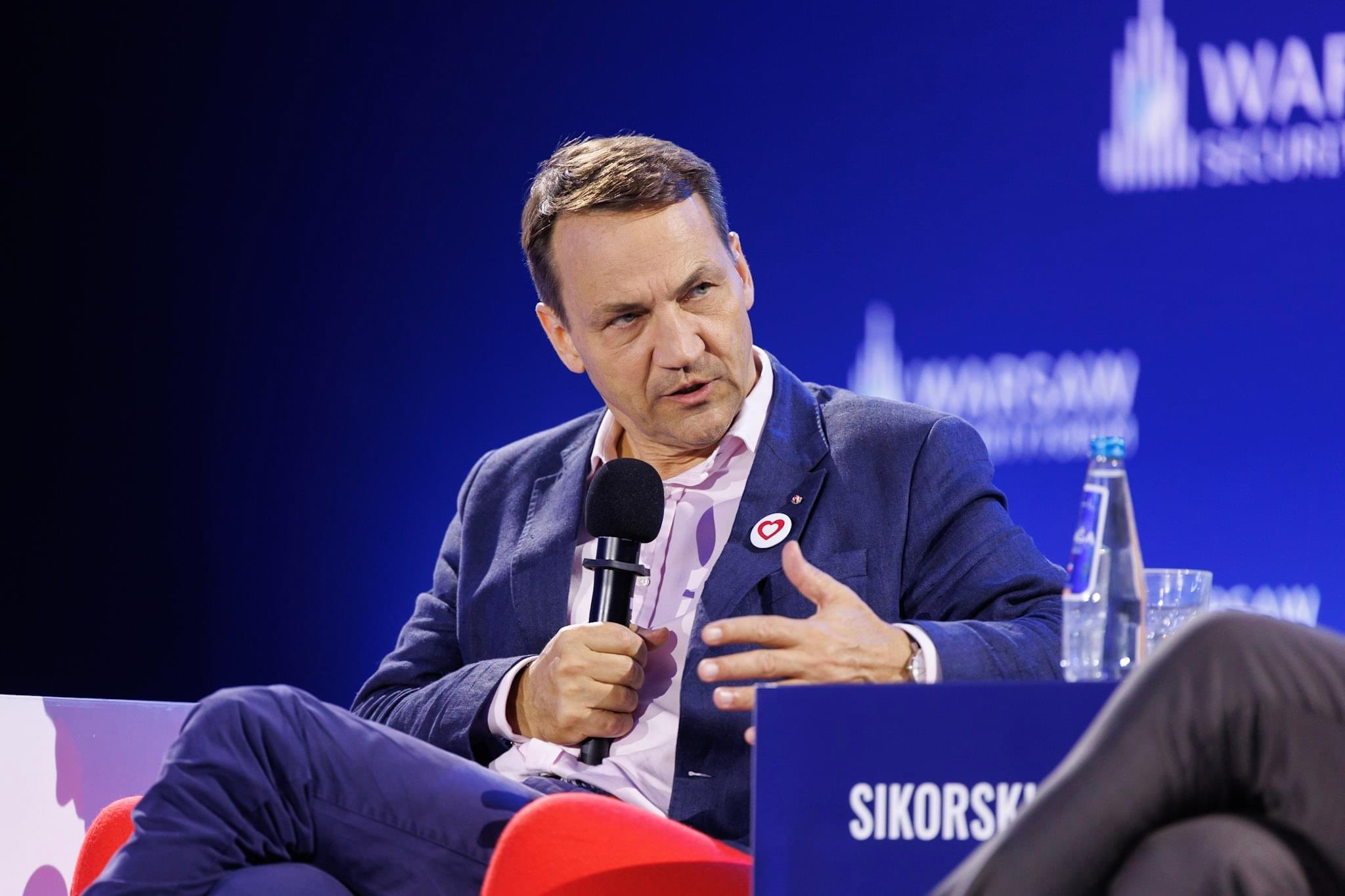
Norway, Sweden, and Finland do not rule out sending troops if the need arises.
The Swedish Minister of Defence has said that Sweden would consider such options if it were proposed by NATO member states.
Latvia will consider sending troops to Ukraine if there is a corresponding agreement between NATO allies.
The Netherlands Chief of Defence said that the allies should be open to all possible options, while not supporting the idea of an immediate deployment when asked in February.
A petition calling for Ukraine to request troops from the alliance has been posted on Ukrainian President Zelensky’s website.
The strategic realities:
- the acknowledgment that the war continues to escalate;
- that NATO is already exposed to Russian aggressions;
- and that what was seen as a regional war is slowly turning into a global conflict with ditto ramifications,
will motivate countries to review past reservations.
Europe enters pre-war era
European politicians increasingly acknowledge that there is a "real" threat of conflict in Europe, and the continent has entered a "pre-war era" for the first time since World War II.
"War is no longer a concept from the past. It is real, and it started over two years ago. The most worrying thing at the moment is that literally any scenario is possible. We haven't seen a situation like this since 1945," Polish Prime Minister, Donald Tusk said on 29 March 2024.
His assessment is verified by several equally sobering assessments from officials from across both the US and Europe:
- "Defending Ukraine against Russia’s brutal ambitions is vital for our security and for all of Europe. If Putin is allowed to succeed in this war of aggression, he will not stop at the Polish border." (UK Prime Minister Rishi Sunak, 23 April 2024)
- “Russia "has become a problem for the world order and democracy," and thus it is waging war not just against Ukraine but also "with the democratic world." (General Gheorghiță Vlad, Romania's Deputy Chief of Defence Staff, 1 February 2024)
- “Europe has between three and five years to prepare for a resurgent Russian military as a serious threat to NATO's eastern flank.” (Prime Minister of Estonia, Kaja Kallas, 16 January 2024)
- Russia's war in Ukraine is a step, not an end goal in its ambition to establish a sphere of interest." (Swedish Chief of Defence, Micael Bydén, 8 January 2024)
- "There is a war going on in Ukraine for the future of the whole of Europe." (Finnish Defence Minister Antti Häkkänen, 24 December 2023)
- “The stakes of this fight extend far beyond Ukraine. They affect the entirety of the NATO Alliance, the security of Europe, and the future of the Transatlantic relationship.” (President Joe Biden, 29 December 2023)
The strategic deliberations extend beyond the question of the deployment of troops.
On 11 May, German MPs from both the Greens, Free Democrats, and the opposition Christian Democratic Union (CDU) party argued in favor of deploying air defense systems on the Ukrainian border to the EU to protect Ukraine’s western regions.
Despite Russia having launched about 8,140 missiles and 5,300 Shahed attack drones against Ukraine since the start of the full-scale war, some of Ukraine’s allies continue to deny it the opportunity to use Western weapons against legal targets inside Russia. The constraint allowed Russia to establish a Northern Grouping of Forces to open a new front in the Kharkiv Oblast without risking prior assault by Ukraine.
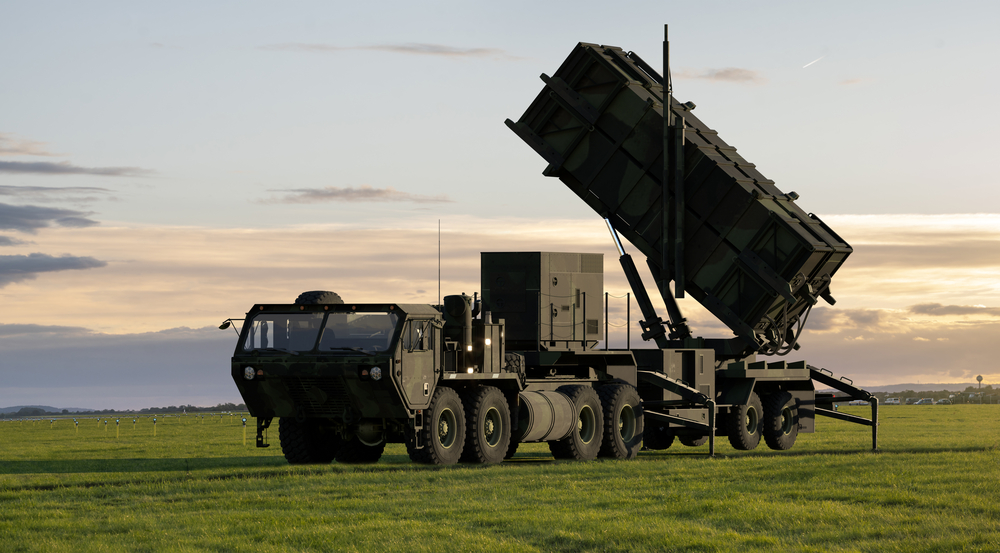
On 2 May, British Foreign Secretary David Cameron stated that London had no objection to the weapons supplied to Ukraine being used inside Russia.
Cameron said Ukraine had a right to use the weapons provided by London to strike targets inside Russia – just as Russia has been doing in Ukraine since 24 February 2022 - and that it was up to Kyiv whether to do so.
A positive trend: NATO members discuss troops in Ukraine
The fact that the issue of military intervention has become a part of public discourse demonstrates a positive trend, as are suggestions that Western air defense should do what the US, France, and the UK did for Israel: repel aerial attacks on civilians and critical infrastructure in Ukraine.
The statements mark yet another step closer to what Eastern Europe asked for at the very start of the full-scale war: for the West to intervene and close the sky over Ukraine.
In 2022, Eastern Europe publicly argued in favor of greater NATO involvement.
Poland, the Czech Republic, and Slovenia put forward a 10-point plan to save Ukraine. The Polish Prime Minister stressed that if this did not stop the war, then NATO should go further and protect the people of Ukraine.
Instead of committing to do more – or rather do Crisis Management as envisaged in its 2010 Strategic Concept – NATO’s Strategic Concept-2022 became a commitment to do less. Recent statements, therefore, mark a shift in strategic thinking.
This is linked to an increasing number of Heads of States acknowledging that what is commonly portrayed as a “Russia-Ukraine war” is only an element of a broader and even more sinister confrontation.
Europe grows immune to Russian blackmail
Russia is rightfully extremely concerned, as a Western intervention equals a Russian defeat. It has successfully deployed reflexive control for more than a decade to manipulate US and European policy and decision-makers into not deploying military forces in Ukraine.
Europe is slowly turning immune to Russian influence operations.
Russia's harsh response was predictable. It again reverted to nuclear blackmail. It recently announced that it would conduct a tactical nuclear weapons exercise in response to Western statements about potential increased support to Ukraine.
Last week it said that sending NATO troops into Ukraine would potentially be extremely dangerous. President Putin has said it could lead to World War Three. “If the West wants to fight for Ukraine on the battlefield, Russia is prepared for it, acting Russian Foreign Minister Sergei Lavrov was quoted as saying on 13 May. "It's their right - if they want it to be on the battlefield, it will be on the battlefield."
Russia has also threatened to attack targets beyond Ukraine in response to the West allowing the use of Western-made weapons against targets inside Russia.
In a comment to the Financial Times, Lithuanian Prime Minister Ingrida Šimonytė ironically said that "every second week you hear that somebody will be nuked," arguing that she found it highly unlikely that they ever would. She rightfully stressed that "If we just thought about the Russian response, then we could not send anything."
The fact is that Ukraine and its allies have repeatedly crossed Russia’s so-called “red lines” without triggering any of the responses it has regularly threatened.
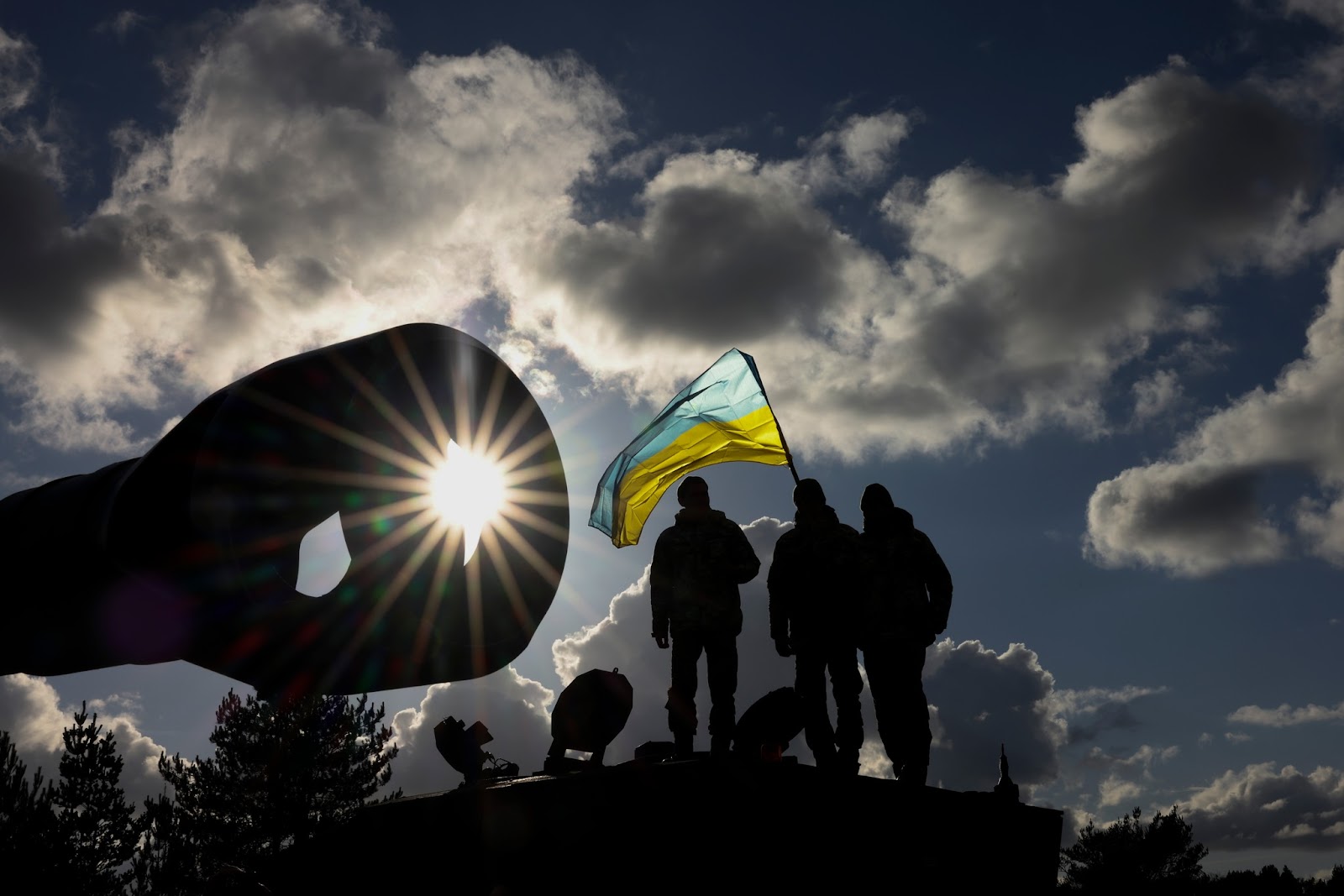
NATO either acts now or accepts war tomorrow
In the article “Russia’s “ultimate” red line is as hollow as the first ten” I argued that Russian “red lines” are fiction. Now it’s finally time for the West to call out Putin’s nuclear bluff.
I have long stressed that Western military intervention is inevitable. The West has nearly run out of weapons it can supply Ukraine which it can use with no or limited training.
The options left for us are either to see Ukraine fail or to support it with Western military forces.
The former is, fortunately, not an option. The consequence of a Russian victory would be devastating for both European security and US credibility.
The reality is that the West is slowly reaching a long-predicted milestone. It is time to ask oneself what we are willing to do to restore peace in Europe.
Unless we deter and push Russia back today, we will end up paying a horrific price tomorrow. This is, after all, first and foremost a confrontation between Russia and the West.
The US seems determined to not provide Ukraine with the tools it needs to be victorious. Its “no boots on the ground” policy, its decision to not shoot down Russian drones and missiles over Ukraine, its refusal to provide F-16, and its unwillingness to provide Patriot air defense systems, Abrams and Bradleys in numbers, reflects the opposite of a war-winning strategy.
Acknowledging that we can no longer take the US’s NATO commitment for granted, Europe must recognize Ukraine as even more crucial to our common security. Europe needs Ukraine – Europe’s strongest military power - as an ally to fill the potential security gap left by the US.
Ukraine will help establish European strategic autonomy. Europe, therefore, needs to start acting as an ally. It is high time to help close Ukraine’s capability gaps. Europe can provide the Air Force and Navy Ukraine desperately needs.
Related:
- Russia’s “ultimate” red line is as hollow as the first ten
- The European Union's new triumvirate
- Why Ukraine’s battle is crucial for dismantling the global “axis of evil”
Editor's note. The opinions expressed in our Opinion section belong to their authors. Euromaidan Press' editorial team may or may not share them.
Submit an opinion to Euromaidan Press

